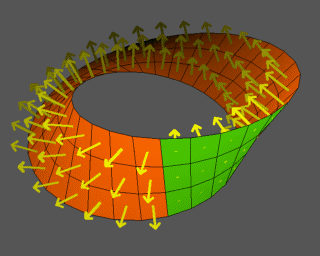|
Definition / description
This idea is grounded in and led by a classical metaphysics of spirit, in a form consistent with the vision of great prophets and mystics and saints and religious teachers since the beginning of history. We speak of "the beginning" and where ideas come from, and what they are made out of.
And yes, of course, ideas in "the real world as it actually is" are a spontaneous overwhelming jumble coming from everywhere, in endless and very complex combinations. But the instinct here is that these combinations are formed by simple common underlying principles, that we can know in mathematical and scientific terms. Every human being is different, every moment of human experience is different, every culture is different. But the incremental elements from which ideas are created can be understood as common to all of them.
Yes, this project is like a vast jigsaw puzzle, where we can identify hundreds of pieces and explore how they fit together to form a whole -- under the intuitive conviction that they DO "form a whole"
But there are other analogies. This project is like a child's construction set -- like "Leggos", like "Erector Sets", like "Tinker Toys", like "Lincoln Logs". Or it's like an adult construction project, like assembling a building or (build an entire neighborhood) an entire housing development.
Wold civilization today is passing though an intense crisis of complexity and fragmentation. Cultures which have arisen independently throughout history are now converging into one another in a common global melting pot. And our most urgent problems are global and our conflicts are increasing dangerous complex.
We need a common ethic of the whole. We need new guiding principles for governance. We need "homeostatic cybernetic democracy". We need cooperation and convergence into a common human mesh, where all things are guided by common boundary values on ecology and economic and individual personal behaviour.
And we need to see how to do this. We need to see that it is possible -- despite very great reasons for skepticism and doubt, despite despair over the human track record of rage and cruelty and selfishness. In the context of all this, this project starts at the beginning -- from the bottom up as the analysis of the continuum as a structure composed of bits, and from the top down, as an analysis of the whole, the one, with all of reality -- all of human ideas and all of culture -- caught in the spectrum between those two polarities. We are proposing to show how this makes sense, is feasible, and how this form can be sealed into unity, into a sealed Oneness that contains it all in an inviolate stability, into a form that honors and embraces all of human creative history, forming a kind of guiding compass for a world that must converge toward The Whole.
We need a core common vision, towards which the world can incrementally transition. This vision must contain science and it must contain spirit and it must contain governance. We can conceive of a global homeostasis mediated in its particulars through electronic networks, and guided from the deeply human level by handshaking agreements between cultures as we confront the tremendous stresses prompted by global evolution and global transition and deep-seated human foibles.
This project is both synthetic and analytic. It creates and compiles and assembles its solutions. Yet it is also empirical, because it proposes to connects to the world as it is, starting from now.
It is a spiritual or humanistic vision, expressed in the language of engineering. As such, it spans the great gulf between cultures and traditional departments of knowledge.
Mon, Apr 12, 2021
|







